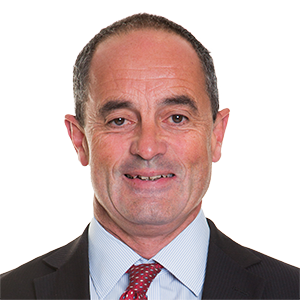Transport, trade and logistics update
Consultations on TNPA tariff application: Winners and losers
South Africa | Press release | August 2022
The Ports Regulator has invited interested parties to register for public consultations on TNPA’s tariff application for 2023/24 to 2025/26. They will run in Gqeberha, Cape Town, Johannesburg and Durban between 5 and 13 September 2022. TNPA is seeking weighted average tariff adjustments of 9.24 per cent for 2023/24, with the bulk of the increase being 22.3 per cent on marine charges borne by shipping lines. This is coupled with an average cargo-due increase of 3.1 per cent which has the effect of reducing the amount by which cargo owners have subsidised shipping lines in the past.
The overall aim is to change the current apportionment being cargo owners 38 per cent, shipping lines 22 per cent and tenants 30 per cent, to 27 per cent, 41 per cent and 32 per cent respectively.
The tariff application is available here and includes all of the financial cargo volume and development assumptions on which the proposal is based.
TNPA is facing increased competition from ports in neighbouring countries due in part to inefficiencies and the high costs of calling at South African ports. Their request for the increases above CPI is designed first to remove subsidisation, and secondly to encourage certain types of cargo. TNPA also wants to invest heavily in port development to develop smart ports that are environmentally sustainable and provide world class infrastructure and operations.
The proposed corporatisation of TNPA should theoretically open up competition for terminal operation, but whether or not this in fact happens remains to be seen.
The application reports that seven active terminal operator agreements have been concluded, but the fact that these were assigned between 2012 and 2018 indicates possible reluctance to conclude concessions. They do, however, list the 2023/24 new concession program with greenfield projects being: Ngqura liquid bulk terminal; East London multi-purpose terminal; and LNG terminals at Richards Bay and Ngqura. They also list brown fuel concessions being two liquid bulk terminals in Cape Town, a bunkering fuel terminal in Richards Bay and a Gately site in East London.
The recent announcement of the development of port and rail infrastructure in the Northern Cape is not included in this tariff application.
The application reports on massive breakbulk and automotive volume growths approaching 50 per cent over the last two years and a container growth of 10 per cent. It includes volume projections for the various types of cargo over the coming years with significant decreases in breakbulk and most liquid bulks and smaller decreases in container volumes which should rebound the following year.
The operating costs section reveals that almost 50 per cent of TNPA’s costs are for labour, and it will be interesting to see whether these costs, which have undermined other SOEs’ ability to invest in infrastructure, will be contained in the future.
The weighted average is considerably higher than the anticipated CPI of 5.3 per cent but what is more worrying is that the TNPA predicts the weighted average tariff increase for 2024/24 of 26 per cent, followed by 3.6 per cent in 2025/26. They should, but do not, comment specifically on this other than referring to the need to deal with deep structural problems in the South African economy which requires investment to advance this State’s development agenda.
On the real estate portion TNPA owns approximately 24 million m2 of land generating 30 per cent of the current revenue, but they anticipate significant rise in revenue averaging 6 per cent per annum for the next several years.
The application summarises the increases in tariffs on various types of cargo with vehicles, dry bulk, breakbulk and containers enjoying a tariff increase of 2.65 per cent, liquid bulks 0 per cent, a significant increase of approximately 8 per cent on container empties and transhipments, and 9 percent on coal, cement and magnetite. These are separate from the 22.3 per cent increase in tariff marine charges.
The Ports Regulator will approve or change the tariff for TNPA following public consultations. Those involved in any aspect of port operations including import and export of cargo, terminal operations and shipping lines would be well-advised to attend the public consultations to make sure that the Ports Regulator takes into account your concerns.

